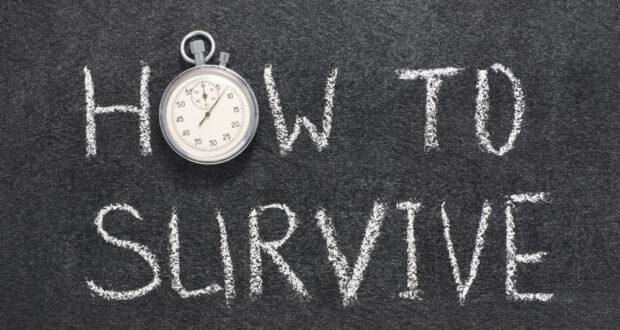Blog
The French government is preparing new … urgent … a survival guide for its citizens
Why European governments are preparing citizens for the crisis
Throughout Europe, governments proactively introduce readiness plans in the event of a failure, distribute survival sets and releasing documents. The French government has recently noticed, preparing to launch a comprehensive survival guide for society.
An extraordinary twist of action? This not only aroused local interest, but was widely reported by the mainstream media … raising eyebrows and causing questions about what could come.
Apparently, the French guide includes scenarios such as the loss of electricity, gas and access to water, as well as road locks during the critical first 72 emergency hours. During this period, citizens are recommended that they be self -sufficient, whether shelter or evacuate with the help of a “workers’ bag.
The government emphasizes a solid list of necessary things: radio, batteries, first aid supplies, tools, food, warm clothes, waterproof equipment, documents and cash. Although this may seem like a standard advice of readiness, time and intensity of implementation mean a deeper problem.
Reading between lines
The French brochure is not only a control list. It is published by the General Secretariat for Defense and National Security, which suggests wider institutional commitment. Its content concerns the possibilities that go beyond natural disasters. Indicates scenarios covering armed conflict, civic anxieties, invasions, nuclear incidents and industrial accidents.
Interestingly, it also contains tips on joining local defense units and fire brigades. Although the details remain rare, the implication is clear: the government wants the communities to organize and react consistent during potential crises.
The emphasis on civil organization and resistance not only reveals a change in tone … from general readiness to mobilization, but also promotes the sense of nationalism during the war.
Wider European context
France is not alone. Other European nations reflect this sense of diligence. For example, Sweden sent five million leaflets to their households. These materials emphasized the military threats and the potential armed conflict, signaling a rare level of public involvement in defense matters. Finland and Norway have made similar movements, and Poland is supposedly working on its own national campaign.
Germany also took specific steps, cataloging bunkers and changing underground spaces, such as parks and metro stations for emergency shelters. Although these funds are described in vague categories, they clearly reflect the concerns about external or internal threats on a large scale.
Despite this wave of activity, Great Britain remained extremely quiet. Since the cessation of the “Protect and survival” campaign in the late seventies, the British government has not made a comparable public initiative. This silence is mysterious, especially taking into account the geographical and strategic proximity of continental Europe. The La Manche channel can serve as a symbolic division, but offers slight practical insulation in a combined world.
According to the French government, the development of joint drugs, vitamins and first aid materials is considered necessary.
Personal responsibility in times of uncertainty
Given the ambiguity of official communication, many people took their preparation. One of the doctors, thinking about development, presented a detailed distribution of what households should consider. Among the basics were water barrels, food, fuel sources, fuel sources, torches and hand tools.
Medical preparation also obtained a special concentration. It was considered necessary to attach over typical drugs, vitamins and first aid materials. Suggestions have expanded to the needs specific for children, including syrups reducing fever and oral irrigation salts. The emphasis was also on the value of analog resources … Physical copies of medical instructions and instructions that remain useful if the digital infrastructure fails.
Some suggestions exceeded the long -term sustainable development: planting fruit trees, developing local food sources and maintaining strong social ties. Although seemingly simple, these ideas transfer weight at a time when global supply chains can break down and state systems can be overwhelmed.
Cooperation on insulation
The discussion inevitably asked the issue of defense. In the face of the hypothetical collapse of the civil order, the message was clear … When bonding personal, it is limited, but collective social organizations can offer real immunity.
The neighbors working together based on the guidelines of local authorities have a better chance of war and greeting chaos than isolated people.
This common way of thinking strengthens a subtle but powerful topic passing through the European Readiness Movement: an attempt to transfer consciousness to nationalism and national defender, as opposed to strictly individual efforts.
Careful curiosity
Ultimately, although there is no confirmed threat of Russian invasion or other nearest disaster, synchronized attention in several European states and the media is noteworthy. Regardless of whether it is caused by geopolitical tensions, environmental instability or emerging security threats, the pursuit of readiness reflects the equalization of citizens’ priorities.
While some can reject these events as overcrowded or moral, others consider them careful and late. After all, being ready does not require knowledge exactly what is coming … Only something can. In this space, community uncertainty can choose fear or prediction.
It seems that readiness now becomes a less niche problem and a more civic duty, according to propaganda. But every preparation is better than nothing. Regardless of whether it is a temporary blackout, natural disaster, or wider social disturbances, such as war, time to prepare is always before an emergency accident … not during this.

